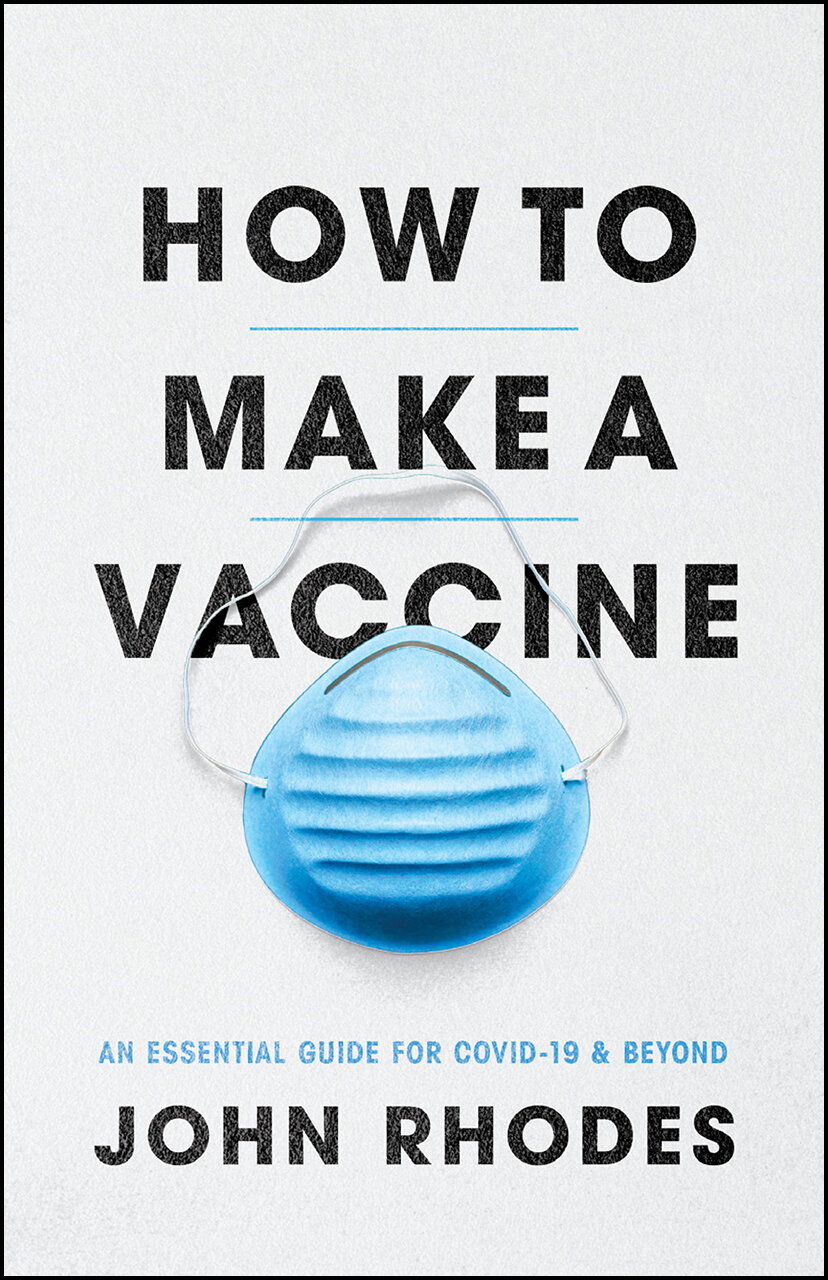University of Chicago Press (World English) – 2021
How to Make a Vaccine: An Essential Guide for Covid-19 & Beyond
By John Rhodes
'This concise book is wide-ranging in the topics covered; from the history of immunology and vaccinology to the early development of multiple Covid-19 vaccines. It explains many of the areas of vaccine development that are rarely discussed, leaving the public wondering what takes so long, and reminds us that vaccines are a wise investment for both our own health and that of the economy'
– Sarah Gilbert, University of Oxford
A distinguished expert in vaccine development tells the story of the first approved Covid-19 vaccines and offers an essential, up-to-the-minute primer on how scientists discover, test and distribute vaccines.
As the Covid-19 pandemic has affected every corner of the world, changing our relationship to our communities, jobs and each other, the most pressing question has been: when will it end? Researchers around the globe are urgently trying to answer this question by racing to distribute vaccines that could end the greatest public health threat of our time. In How to Make a Vaccine, an expert who has firsthand experience developing vaccines tells an optimistic story of how 300 years of vaccine discovery and a century-and-a-half of immunology research have come together at this powerful moment – and are leading to multiple Covid-19 vaccines.
John Rhodes draws on his experience as an immunologist, including working alongside a young Anthony Fauci, to unravel the mystery of how vaccines are designed, tested and produced at scale for global deployment. Concise and accessible, this book describes in everyday language how the immune system evolved to combat infection, how viruses responded by evolving ways to evade our defences and how vaccines do their work. That history, and the pace of current research developments, make Rhodes hopeful that multiple vaccines will protect us. Today the complex workings of the immune system are well understood. The tools needed by biomedical scientists stand ready to be used, and more than 160 vaccine candidates have already been produced. But defeating Covid-19 won’t be the end of the story: Rhodes describes how discoveries today are also empowering scientists to combat future threats to global health, including a recent breakthrough in the development of genetic vaccines, which have never before been used in humans.
As we begin to vaccinate the world against Covid-19, Rhodes offers an authoritative snapshot of the science and strategies that will deliver the only realistic solution to the crisis.

